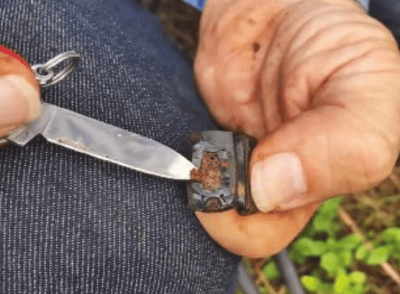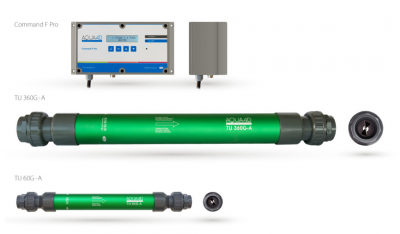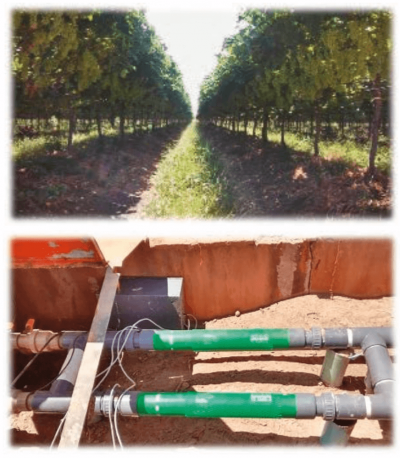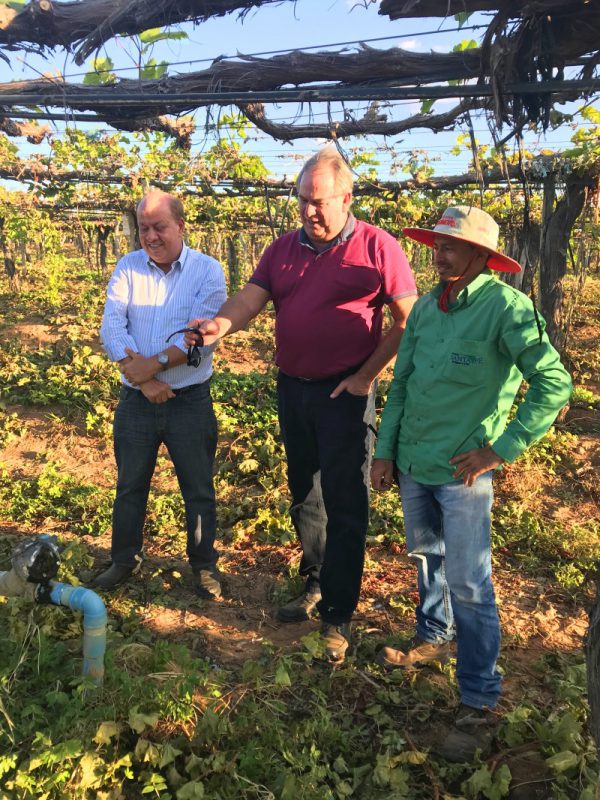This article was originally published in Portuguese in the Campo & Negócios Hortifrúti magazine.
Back in 2017, the National Water Agency (ANA, by its acronym in Portuguese) released a study entitled ‘Atlas Irrigation: the use of water in irrigated agriculture’, which mapped out the situation of the sector in the country.
The data revealed that Brazil is among the ten countries that most irrigate in the world, with a productive area of 6.95 million hectares and a growth potential of 45% until 2030. With all this potential, the ANA’s main concern is that this expansion will take place in a sustainable manner, meeting the environmental responsibility criteria of the regulatory bodies linked to the environmental sector.
As the irrigated areas are expanding, we have also observed losses of areas due to salinization, and the risk of occurrence of water crises due to climate change, compromising the planet’s water resources.
Farmers must pay more attention to these facts than ever before, promoting structural improvements, investing in more efficient irrigation systems, in high-tech equipment and practices that will provide greater water savings.
Water quality is one of the main points in the production process, and Brazil has a tropical and subtropical climate, in which most sources of surface water are rich in organic matter, algae, organic colloid, iron and manganese, and its use without observing due care causes accumulations of dirt inside the pipes of irrigation systems, creating biofilm, obstructing valve controls and emitters, and compromising the efficiency of the system.
Hard water
Another problem that affects irrigation systems is so-called hard water which is rich in calcium, magnesium and/or sodium carbonates and bicarbonates, which cause clogging in pipes and emitters. To the right we can see the result of obstructions caused by biofilm, which are organic colloids associated with FeO3 + and MnO +, and obstruction caused by bicarbonates.

Cause and effect
It’s often the case that farmers don’t realize there are constant frustrations of harvests and compromised fruit quality due to incrustation and obstruction problems of the emitters, unbalancing the irrigation system and, therefore, failing to supply the plants with water and nutrients in the correct quantity.
With the advent of technology like AQUA4D®, it is possible to have excellent quality water, which allows the removal of biofilm and carbonate tartar from the inside of irrigation systems, keeping the systems always clean, and thereby ensuring better distribution of water and nutrients. The system is modularized, serving all types of irrigation and flow rates. Simple to install, it is installed after pumping, after filters and the fertilizer injector.
The moment the water passes through the Treatment Unit (TU), it is touched at the same frequency and sent by the FPro Command, breaking down the clusters and thereby improving the physical properties of water – without changing its chemical properties.

Exponential benefits
In addition to aforementioned benefits, with AQUA4D® treatment there is a noticeable improvement in the relationship of water with the soil and the plant, whether in terms of water storage capacity in the soil, which can be measured by tensiometers, or by greater availability of salts in the soil solution.
In most diverse crops, such as: banana, lemon, mango, grape, guava, papaya, melon, watermelon, flowers and coffee in various regions of Brazil and the world, this technology consistently presents positive results, with greater water savings, desalination of soils, and gains in yields, plant health and fruit quality.
Tangible results
In the photos on the right we can see an area growing table grapes in the São Francisco Valley. The grower achieved incredible results, even with good local water conditions (from the São Francisco River), and the AQUA4D® system with treatment for up to 44 m³/h.
There was an increase in productivity of 27%, and an increase in quality of 14%, as shown below.


Sustainable agriculture, fast ROI
A multitude of cases around the world attest to the direct and indirect gains provided by AQUA4D® technology. This includes water savings, being able to irrigate with saline water, resolving clogging and biofilm issues, and sustainably preventing nematode attacks. Moreover, producers can expect a Return on Investment (ROI) within the first year for short cycle crops, and at most in three years for long cycle crops.
Learn more:
Chief Agronomist, George Melo, discusses how AQUA4D can revolutionize water use efficiency in Brazil:
Pablo Dantas from Agricola Famosa discusses the impact of the Aqua4D system
Melon grower Armando Malul explains how Aqua4D saved his crops




